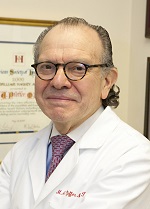Back in 2013, Sanofi ($SNY) pulled its FDA application for Lyxumia (lixisenatide), a GLP-1 diabetes fighter set to compete with the likes of Novo Nordisk's ($NVO) blockbuster Victoza. At the time, the FDA was tightening up on new diabetes drugs, worried about another safety scandal like the Avandia heart-risk debate, and Sanofi decided to wait till a cardiovascular outcomes trial could prove its new drug was safe.
Now, the details of that trial are available--and Lyxumia passed the safety test, researchers say. In the 6,000-patient ELIXA study, focused on diabetics at high risk of cardiovascular problems, Lyxumia patients were no more likely to suffer heart attack, stroke, or hospitalization for angina than patients in the placebo arm.
Ideally for Sanofi, Lyxumia would have proven better than placebo on those CV measures; that would have given the French drugmaker a potential superiority claim to tout when launching the drug in the U.S. The once-daily drug will not only face Novo's daily Victoza, but Eli Lilly's ($LLY) brand-new, longer-acting Trulicity in the GLP-1 world. And Sanofi's combo hopeful--internally nicknamed "Lixilan" because it pairs lixisenatide with its basal insulin Lantus--will go up against Novo's combo Xultophy, a marriage of Victoza and Tresiba, Novo's forthcoming long-acting basal insulin.
But proven safety is its own sort of edge, and the ELIXA trial also suggests that Lyxumia carries no greater risk of heart failure, pancreatitis or pancreatic cancer. Heart failure and pancreatitis signals have cropped up with a variety of diabetes drugs, including several among the broad group of incretin mimetics, which include DPP-4 inhibitors as well as Lyxumia's fellow GLP drugs.
 |
| Brigham and Women's Hospital's Marc Pfeffer |
Presenting the data at the American Diabetes Association meeting, lead author Dr. Marc Pfeffer, a cardiologist at Brigham and Women's Hospital and professor at Harvard Medical School, said the ELIXA study gives a broad view of Lyxumia's safety. The study "goes beyond the FDA guidance to deliver data related to heart failure and other insights that are not currently available for any other GLP-1 receptor agonist," Pfeffer said in a statement. "Our data provide the medical community, patients and caregivers with information that will better inform them about how lixisenatide can be safely used to better control their glucose."
At a press conference about the results, Dr. Matthew Riddle of Oregon Health & Science University downplayed the fact that Lyxumia matched, rather than beat, placebo at cardiovascular safety. The ELIXA trial was just over two years, and lowering blood glucose has the potential to protect against heart disease 20 years down the line, Riddle said: "There's no reason from the results not to use lixisenatide. Even in high risk patients like this, it's another tool in the box."
Sanofi was quick to point out that Lyxumia is now the only GLP-1 drug to have this sort of data on CV risks. But the ELIXA data do bode well for its fellow GLP drugs, which are undergoing their own outcomes trials. The data "underscore the safety of this compound," said Dr. Silvio Inzucchi of Yale Diabetes Center at the press conference, "perhaps this compound class, but we don't know that for sure."
We won't know that for sure till the other outcomes data arrive; Novo has an 8,000-patient CV trial running on Victoza, dubbed LEADER, and it's supposed to wrap later this year. Novo is also studying heart safety with its Victoza follow-up drug semaglutide, while Eli Lilly's REWIND study is examining Trulicity (dulaglutide) CV outcomes. Then there's the EXSCEL trial, checking out AstraZeneca's ($AZN) Byetta (exenatide).
Jefferies analysts have said they see Lyxumia grabbing 25% of the GLP-1 market, giving it a $900 million-or-so peak sales estimate. But Novo and Lilly have said they see the GLP-1 pie swelling beyond current estimates, as new entrants help build the case for the class and the incidence of diabetes grows.
- read the Sanofi release
- get more from Medscape (reg. req.)
Special Reports: Top 10 best-selling diabetes drugs of 2013 | Top 15 pharma companies by 2014 revenue - Sanofi - Lilly - AstraZeneca